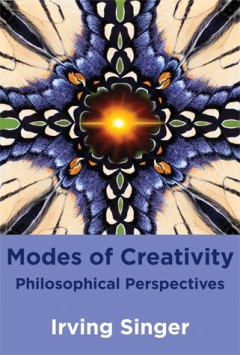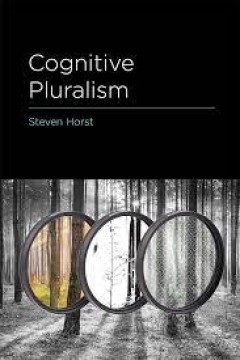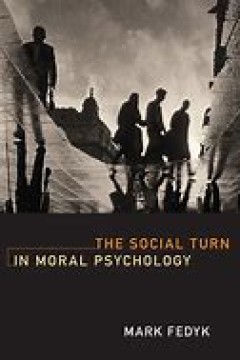Filter by

Modes of Creativity: Philosophical Perspectives
Philosophical reflections on creativity in science, humanities, and human experience as a whole.In this philosophical exploration of creativity, Irving Singer describes the many different types of creativity and their varied manifestations within and across all the arts and sciences. Singer's approach is pluralistic rather than abstract or dogmatic. His reflections amplify recent discoveries in…
- Edition
- -
- ISBN/ISSN
- 9780262295765
- Collation
- 1 online resource (xvi, 309 pages)
- Series Title
- -
- Call Number
- -

Cognitive pluralism
An argument that we understand the world through many special-purpose mental models of different content domains, and an exploration of the philosophical implications. Philosophers have traditionally assumed that the basic units of knowledge and understanding are concepts, beliefs, and argumentative inferences. In Cognitive Pluralism, Steven Horst proposes that another sort of unit--a mental mo…
- Edition
- -
- ISBN/ISSN
- 0262333627
- Collation
- 1 online resource (xii, 360 pages) :illustrations, maps
- Series Title
- -
- Call Number
- -

The Social Turn in Moral Psychology
"In this book, Mark Fedyk offers a novel analysis of the relationship between moral psychology and allied fields in the social sciences. Fedyk shows how the social sciences can be integrated with moral philosophy, argues for the benefits of such an integration, and offers a new ethical theory that can be used to bridge research between the two. Fedyk argues that moral psychology should take a s…
- Edition
- -
- ISBN/ISSN
- 9780262337151
- Collation
- 1 online resource (x, 246 pages) :illustrations
- Series Title
- -
- Call Number
- -

Material noise :reading theory as artist's book
OCLC-licensed vendor bibliographic record.
- Edition
- -
- ISBN/ISSN
- 9780262354950
- Collation
- 1 online resource (224 pages).
- Series Title
- -
- Call Number
- -

Liquidation world :on the art of living absently
In ' Liquidation World', Alexi Kukuljevic examines a distinctive form of subjectivity animating the avant-garde: that of the darkly humorous and utterly disoriented subject of modernity, a dissolute figure that makes an art of its own vacancy, an object of its absence. Shorn of the truly rotten illusion that the world is a fulfilling and meaningful place, these subjects identify themselves by a…
- Edition
- -
- ISBN/ISSN
- 9780262342124
- Collation
- 1 online resource.
- Series Title
- -
- Call Number
- -

Moral psychology.
"For much of the twentieth century, philosophy and science went their separate ways. In moral philosophy, fear of the so-called naturalistic fallacy kept moral philosophers from incorporating developments in biology and psychology. Since the 1990s, however, many philosophers have drawn on recent advances in cognitive psychology, brain science, and evolutionary psychology to inform their work. T…
- Edition
- -
- ISBN/ISSN
- 9780262302951
- Collation
- 1 online resource
- Series Title
- -
- Call Number
- -

Moral psychology.
"For much of the twentieth century, philosophy and science went their separate ways. In moral philosophy, fear of the so-called naturalistic fallacy kept moral philosophers from incorporating developments in biology and psychology. Since the 1990s, however, many philosophers have drawn on recent advances in cognitive psychology, brain science, and evolutionary psychology to inform their work. T…
- Edition
- -
- ISBN/ISSN
- 9780262302982
- Collation
- 1 online resource
- Series Title
- -
- Call Number
- -

Moral psychology.
"For much of the twentieth century, philosophy and science went their separate ways. In moral philosophy, fear of the so-called naturalistic fallacy kept moral philosophers from incorporating developments in biology and psychology. Since the 1990s, however, many philosophers have drawn on recent advances in cognitive psychology, brain science, and evolutionary psychology to inform their work. T…
- Edition
- -
- ISBN/ISSN
- 9780262303019
- Collation
- 1 online resource
- Series Title
- -
- Call Number
- -

Seeing double :shared identities in physics, philosophy, and literature
"The separateness and connection of individuals is perhaps the central question of human life: What, exactly, is my individuality? To what degree is it unique? To what degree can it be shared, and how? To the many philosophical and literary speculations about these topics over time, modern science has added the curious twist of quantum theory, which requires that the elementary particles of whi…
- Edition
- -
- ISBN/ISSN
- 9780262281492
- Collation
- 1 online resource (184 pages) :illustrations
- Series Title
- -
- Call Number
- -

Relativism and the foundations of philosophy
"A Bradford book."A defense of the view that philosophical propositions are true in some perspectives and false in others, arguing that the rationalist, intuition-driven method of acquiring basic beliefs favored by analytic philosophy is not epistemically superior to such alternate belief-acquiring methods as religious revelation and the ritual use of hallucinogens. The grand and sweeping claim…
- Edition
- -
- ISBN/ISSN
- 9780262274746
- Collation
- 1 online resource (x, 216 pages)
- Series Title
- -
- Call Number
- -
 Computer Science, Information & General Works
Computer Science, Information & General Works  Philosophy & Psychology
Philosophy & Psychology  Religion
Religion  Social Sciences
Social Sciences  Language
Language  Pure Science
Pure Science  Applied Sciences
Applied Sciences  Art & Recreation
Art & Recreation  Literature
Literature  History & Geography
History & Geography